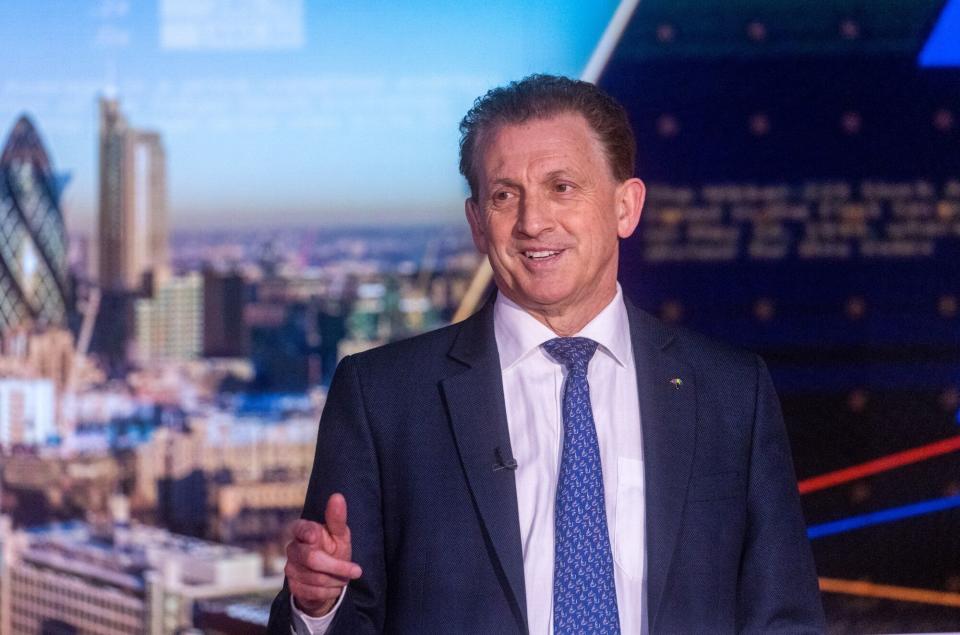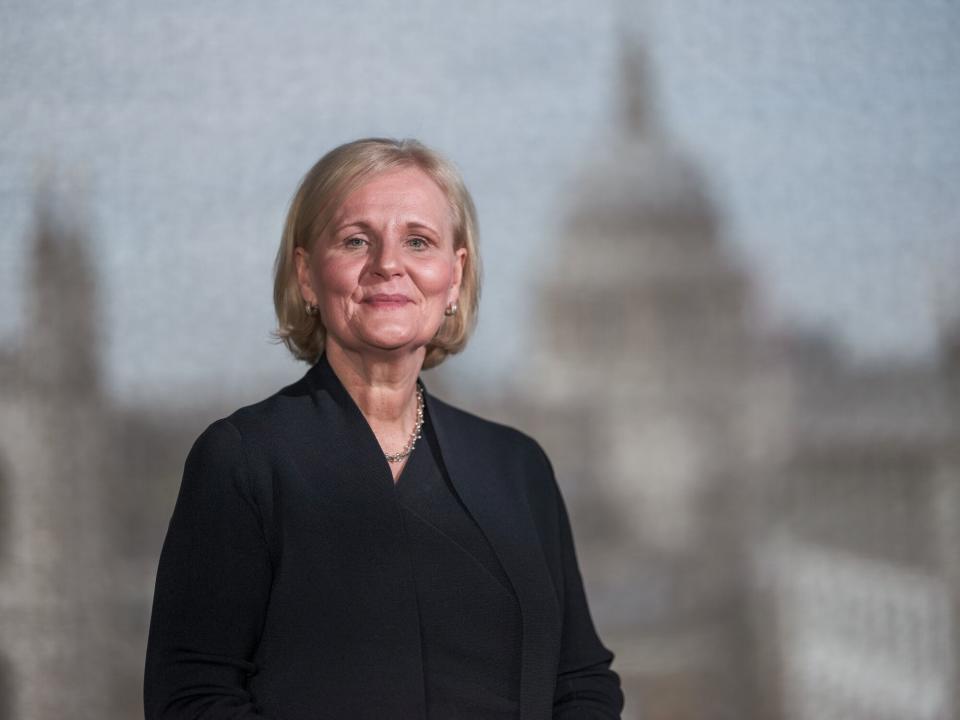Labour Considers Business Veterans for Roles in UK Government
(Bloomberg) -- The Labour Party could bring a number of City chiefs and business leaders on board, as advisers or even government ministers, if it wins the general election on July 4.
Most Read from Bloomberg
Homebuyers Are Starting to Revolt Over Steep Prices Across US
Modi Set for Landslide Election Win in India, Exit Polls Show
Wall Street Billionaires Are Rushing to Back Trump, Verdict Be Damned
Saudi Arabia Puts Wall Street on Notice to Set Up Shop in Riyadh
Chinese Spacecraft Makes Historic Landing on Far Side of Moon
After spending years rebuilding relationships in the corporate world, Labour has ties to a number of executives who could step in to offer policy support or take formal roles in the potential next government’s push to support business. The party is also fielding candidates with business links such as Emma Reynolds who, if they become MPs in July, could pick up ministerial jobs, according to people familiar with the matter.
Possible recruits from the business realm include Benny Higgins, the former Tesco Bank chief executive who advised the Scottish National Party on post-Covid growth strategies and worked with shadow business secretary Jonathan Reynolds on engaging with companies. Earlier this week, Higgins signed a letter with other business figures backing Labour.
Other prospects include Iain Anderson, executive chairman of public relations firm H Advisors/Cicero, who wrote a report for Labour this year on how to improve relations between the government and business. Jim Murphy, meanwhile, founded consulting firm Arden Strategies after stepping down as an MP in 2015. He served as a minister under Labour Prime Ministers Tony Blair and Gordon Brown.
Another candidate could be Nigel Wilson, the former chief executive of insurer Legal & General Group Plc who has called for asset managers to invest more in areas such as housing. Wilson has previously said he wouldn’t rule out a move into government, and has in the past considered taking on the role of investment minister, people familiar with the matter said, asking not to be named discussing confidential conversations.
None of the people under consideration for possible roles responded to requests for comment.
Labour is looking at this area, a person familiar with the matter said, but would not comment on any names. Discussions over specific jobs have not yet happened, the people said. Parties are finalizing their candidate lists ahead of the nomination deadline next Friday.
Job Openings
A key job in the next government will be the City minister, who will liaise with the financial sector. Held by Andrew Griffith and then Bim Afolami in recent years, the job has involved handling issues such as debanking and the industry’s post-Brexit rulebook.
Tulip Siddiq, who is currently Labour’s shadow City minister, will take that role if the party wins the election, a Labour spokesperson said in a statement. And there are others with ties to the industry that could help with outreach to firms.
Reynolds, currently head of public affairs at lobby group TheCityUK, is trying to return to parliament after a five-year gap and could take on a ministerial role, people said.
Another Labour MP who has made a mark in City circles is Alistair Strathern, who only entered parliament last year and was given a shadow joint parliamentary private secretary role covering finance and the environment. Reynolds and Strathern did not respond to requests for comment.
Improving Relations
Labour leader Keir Starmer and shadow chancellor Rachel Reeves have pushed to improve relations with business after Jeremy Corbyn’s left-leaning leadership came to an end in 2020. Other senior business figures that have offered help with projects include Jim O’Neill, a former Goldman Sachs chief economist who now sits in the House of Lords, and who wrote a report on startups last year. David Schwimmer, chief executive of London Stock Exchange Group Plc, and the chairs of several FTSE 100 companies advised on a financial services policy blueprint in January.
Business leaders including Amanda Blanc, chief executive of Aviva Plc, are on a taskforce helping Labour model its National Wealth Fund, which is intended to deploy public and private money in investments such as green technology.
There are also figures in the tech industry that could offer expertise. One person familiar with the matter pointed to Saul Klein, an entrepreneur who was last year appointed as a non-executive director for Rishi Sunak’s government in the Department for Science, Innovation and Technology. Klein didn’t respond to a request for comment.
Track Record
There’s a precedent for Labour governments drafting in business talent. In 1997, Blair placed business people in several jobs and advisory roles, often via appointments to the House of Lords. They included David Sainsbury, of the supermarket family, who was a major Labour donor and served as science and innovation minister for eight years.
The late fund manager Paul Myners became City minister during the financial crisis, while Mervyn Davies was made trade and investment minister after a career in banking.
Adding some expertise from outside could help Labour’s leadership fill gaps in its business experience. Jonathan Reynolds, the shadow business secretary, and Darren Jones, Labour’s chief secretary to the Treasury, are both lawyers, as is Starmer. Reeves worked briefly at the Bank of England and HBOS, the bank.
To be sure, Labour’s new intake looks set to boost the business and financial policy knowledge in its ranks, according to an analysis of the backgrounds of likely new Labour MPs by Joe Armitage, lead UK political analyst at Global Counsel. They include Louise Jones, standing in North East Derbyshire, who was briefly at Morgan Stanley and now works in analytics for clients in the insurance sector and Samantha Niblett, standing in the neighboring South Derbyshire, who has created a Labour Women in Tech group.
--With assistance from Philip Aldrick.
Most Read from Bloomberg Businessweek
Disney Is Banking On Sequels to Help Get Pixar Back on Track
Israel Seeks Underground Secrets by Tracking Cosmic Particles
US Malls Avoid Death Spiral With Help of Japanese Video Arcades
How Rage, Boredom and WallStreetBets Created a New Generation of Young American Traders
©2024 Bloomberg L.P.

 Yahoo News
Yahoo News 


